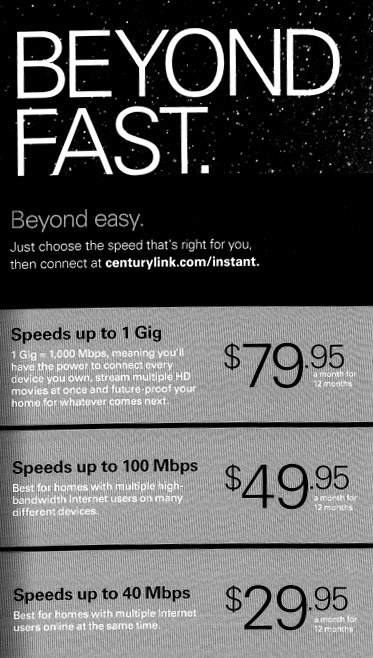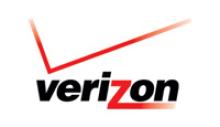Gigabit Awards Contest From Siklu: RFI Deadline March 14th
Siklu, known for its wireless technology innovation, is now in the process of granting a number of "Gigabit Awards." Their goal is to offer municipalities an opportunity to use their high-speed wireless technology.
Who Can Compete?
Communities who can offer quick deployment and meet the company's qualifying criteria will win the equipment package. A municipality will need the following to be considered for a "Gigabit Award":
1. An existing fiber network with accessible PoPs, and the ability to provide internet services over this network
2. The capability to install (internally or with a partnering ISP) the Gigabit links within a tight deployment schedule
3. Free services to underserved locations will be considered as an advantage: affordable housing, community sites, school facilities
The Siklu equipment package includes:
1. 10 gigabit links to connect buildings (MDUs, anchor institutions etc.)
2. Wireless planning, training and support services
Speed Is Of The Essence
The RFI submission deadline of March 14th is fast approaching and "Gigabit Award" announcements will begin on March 21st. Rollout plan submissions, approvals, and kick offs will all happen in April with completion goal scheduled for May 31st, 2016.
For more details, download the Gigabit Award Checklist, which contains information on RFIs, or contact Siklu's Boris Maysel at boris.m(at)siklu.com.





 The promotional sheet claims CenturyLink will offer speeds "up to" 1 Gig for $79.95/month for 12 months. 100 Mbps runs $49.95 and 40 Mbps is $29.95 - each for 12 months. No mention of upload speeds but CenturyLink has demonstrated a real aversion to symmetry so users can expect far slower upstream than what modern municipal networks and Google fiber deliver.
The standard operating procedure in apartment buildings will be for CenturyLink to try to lock up the internal wiring to buildings and deny it to competitors. FCC rules make exclusive agreements with landlords unenforceable, but there are a host of tricks that incumbents use to prevent any competition and landlords getting a kickback often have little reason to encourage competition.
The CenturyLink copy notes that its fiber optic GPON option is "up to" more than 92 percent energy efficient than cable modem Internet access. I have to wonder how it compares to DSL energy efficiency and whether that number holds up better than the "up to" 12 Mbps claims they make on DSL circuits that seldom peak at 5 Mbps.
At any rate, it is more than we can expect in the many communities CenturyLink is serving where there the local government have done nothing to spur competition by investing in publicly owned assets that could form a municipal network or be used to entice independent service providers to enter the market. In particular, I would be curious where else CenturyLink is rolling out fiber to buildings without any upfront charges.
The promotional sheet claims CenturyLink will offer speeds "up to" 1 Gig for $79.95/month for 12 months. 100 Mbps runs $49.95 and 40 Mbps is $29.95 - each for 12 months. No mention of upload speeds but CenturyLink has demonstrated a real aversion to symmetry so users can expect far slower upstream than what modern municipal networks and Google fiber deliver.
The standard operating procedure in apartment buildings will be for CenturyLink to try to lock up the internal wiring to buildings and deny it to competitors. FCC rules make exclusive agreements with landlords unenforceable, but there are a host of tricks that incumbents use to prevent any competition and landlords getting a kickback often have little reason to encourage competition.
The CenturyLink copy notes that its fiber optic GPON option is "up to" more than 92 percent energy efficient than cable modem Internet access. I have to wonder how it compares to DSL energy efficiency and whether that number holds up better than the "up to" 12 Mbps claims they make on DSL circuits that seldom peak at 5 Mbps.
At any rate, it is more than we can expect in the many communities CenturyLink is serving where there the local government have done nothing to spur competition by investing in publicly owned assets that could form a municipal network or be used to entice independent service providers to enter the market. In particular, I would be curious where else CenturyLink is rolling out fiber to buildings without any upfront charges.


 But Verizon immediately goes crying to the state regulators: "The landlords aren't playing nice, force them to let us into their buildings!"
Anyone who still believes competitive or free markets are synonymous with unregulated markets is fooling themselves. Big firms use deregulation or regulation in their attempts to corner and monopolize markets.
But Verizon immediately goes crying to the state regulators: "The landlords aren't playing nice, force them to let us into their buildings!"
Anyone who still believes competitive or free markets are synonymous with unregulated markets is fooling themselves. Big firms use deregulation or regulation in their attempts to corner and monopolize markets.